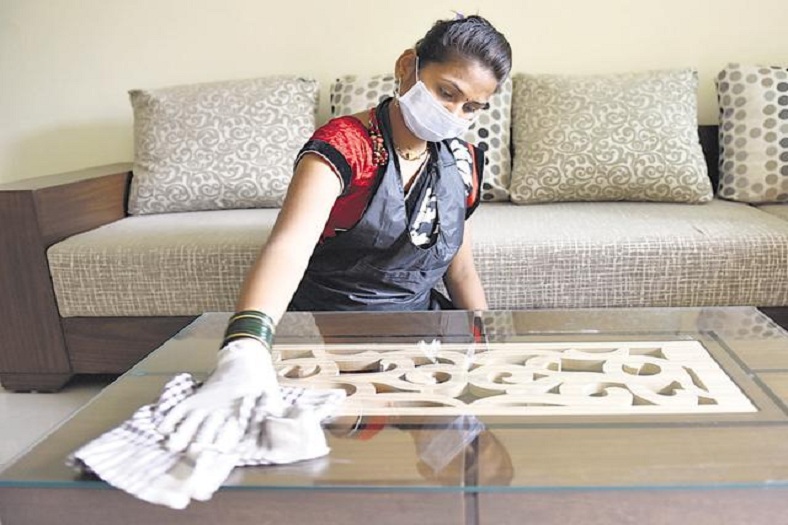New Delhi: Like many others an uncertain future haunts them also. Yes we are talking about the domestic help all across India. All these years they have made living dignified working very hard. They have become the backbone of many families. However, now they are unable to go to work and waiting out the lockdown in increasing anxiety.
Their employers would love to have them back. However, the fear of the spread of coronavirus and strict social distancing norms has prevented them from returning to work. The workforce comprising mainly women is now not allowed to enter the colony or gated community they work in.
Future uncertain
Their future depends on the goodwill of their employers. Some might pay salaries for work not done and some might refuse. The last month and more has spelt despair for the helps. They don’t know when the lockdown will end and whether they can get back to work even when it does.
Sushila Kaushalya Devi lives in Madanpur Khadar, nearly 12km from her area of work in south Delhi’s CR Park. She said one of her three employers preempted the lockdown and gave her an advance to stock up on rations.
This would have been okay for the month for her family of four – including her husband and two children. However, two of her brother-in-law’s children have got stuck with the family.
“The food which would have lasted the four of us an entire month got over several days ago and there’s no money to buy more,” Devi said. She added that she has been unable to collect her salaries from the other two employers due to the restrictions on movement.
The money can’t be transferred to a bank account because she doesn’t have an ATM card and the bank is too far. She is married to a vertically challenged man. The entire family depends on Sushila’s income. However, now she is struggling to make ends meet with no money coming in for at least another month.
Lack of proper support
There are about 10-15 lakh women like Sushila in the Delhi-NCR region alone, estimates Maya John of the Gharelu Kamgar Union (GKU). There are no official figures documenting the number of people working in this sector. The actual number is likely to be as high as 10-15 lakh,” John informed.
She said only a few workers were fortunate to receive an advance salary. She also said few others are adept at using payment options like bank transfers, PayTM and Google-Pay.
Their problems are many, including being harassed by police on the way and lack of public transport. For many, the pre-paid SIM cards have run out of money and they have no way of recharging their phones.
Many employers said they were unable to contact their domestic helpers over the phone.
“First they face harassment by the police on the way. Even if these maids do manage to reach the housing complexes where they work, there is friction with the RWAs. Many are not letting them even collect their salaries,” John said.
Several employers have also said they would not pay wages if the maids don’t turn up for work.
Police playing spoilsport
Pinky works as a cleaning and cooking help in Noida’s Sector 39. She has been trying to collect her salary from her employers since the first week of April but in vain. “Every time I step out, police stops me at the barricades,” informed Pinky.
Her husband, a construction worker, is also out of work. The couple has been forced to dig into their nominal savings for day-to-day survival.
Like Devi, Pinky too does not have access to an ATM card and is waiting for the restrictions to be relaxed so she can collect her salary.
Agencies
